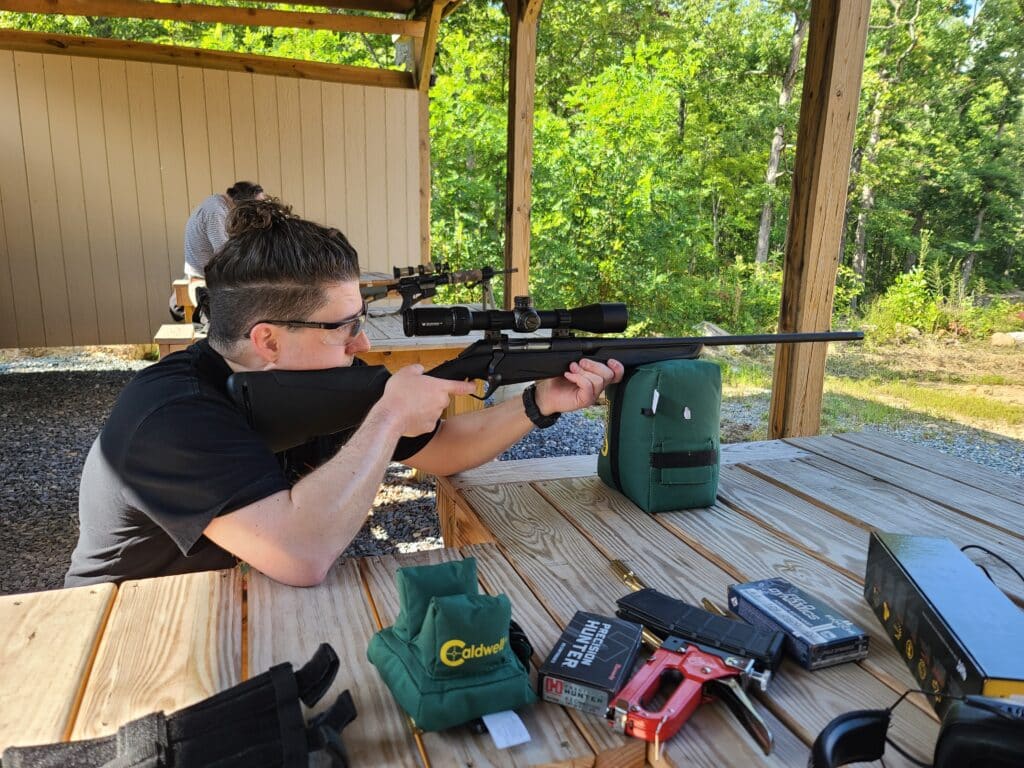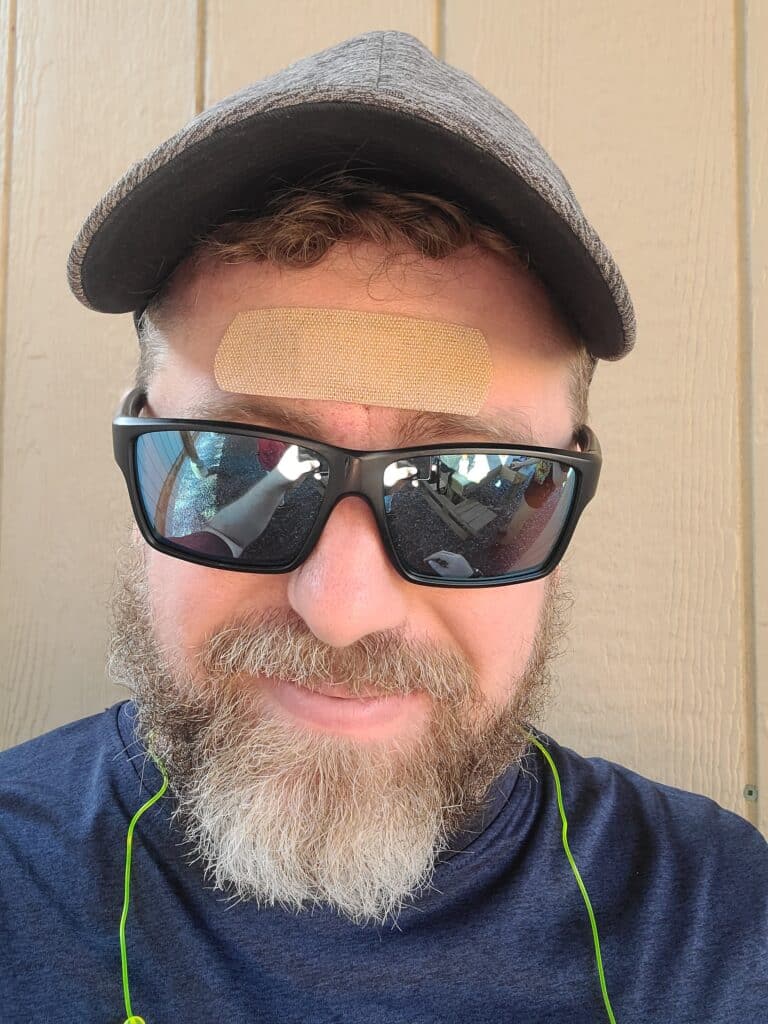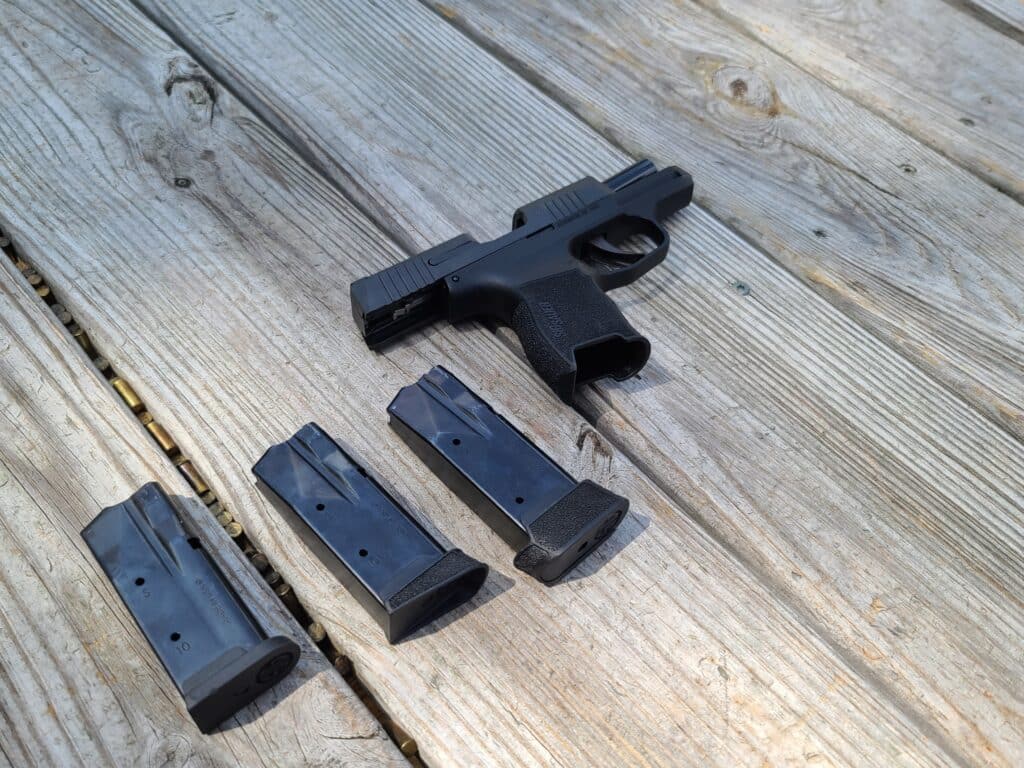This week we’re looking at some trends, both good and bad depending on your perspective.
If you’re a gun-rights advocate, the first trend is a positive one. More and more federal judges are extending Second Amendment protections to young adults. A federal judge ruled this week that Texas can’t deny gun-carry rights to 18-to-20-year-olds. His was the first such ruling under the new Bruen standard but it’s the third to protect young Americans’ gun rights over the past few years.
At the same time, public opinion has increasingly turned against the gun rights of 18-to-20-year-olds. Contributing Writer Jake Fogleman takes a look at the tension between those divergent trends.
Then I take a look at a new polling trend that also ought to concern gun-rights advocates. Support for gun control reached an all-time high in the latest Associate Press poll. What’s worse, though, is it’s the culmination of a decade-long upswing in support despite a traditional ebb and flow in gun polling.
Plus, Cam Edwards of Bearing Arms joins the podcast to give his take on the uptick in support for new gun restrictions.
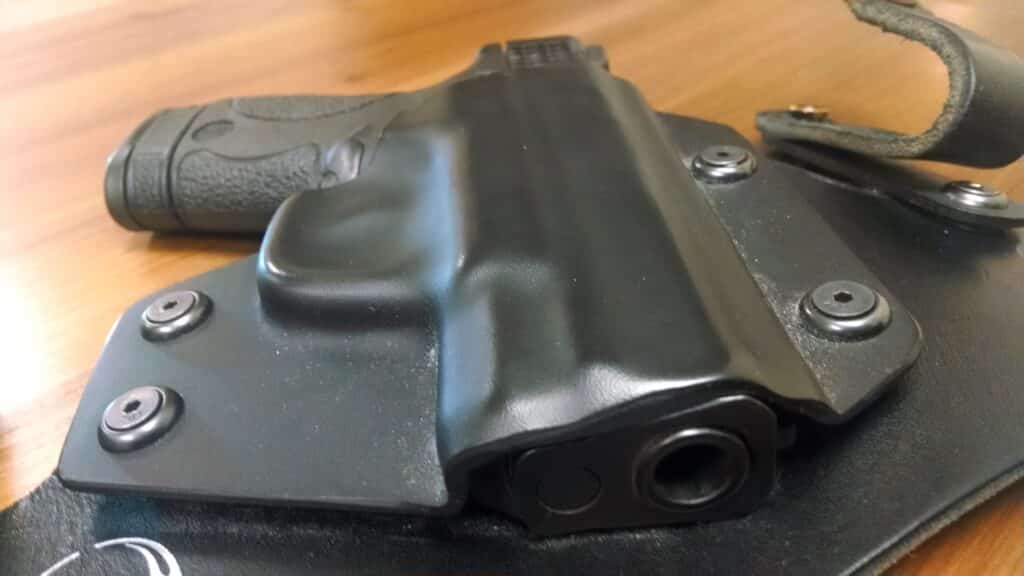
Analysis: Public Opinion on Guns for Young Adults Zigs as Judicial Rulings Zag [Member Exclusive]
By Jake Fogleman
On Thursday, a U.S. District Court Judge ruled that there was no valid historical tradition that would allow Texas to restrict the ability of law-abiding adults aged 18 to 20 to carry handguns in public for self-defense. It marked the first age-based gun restriction to be struck down in a federal court since the Supreme Court’s landmark gun-carry decision in New York State Rifle and Pistol Association v. Bruen.
“Based on the Second Amendment’s text, as informed by Founding-Era history and tradition, the Court concludes that the Second Amendment protects against this prohibition,” Judge Mark Pittman wrote in his order. “Texas’s statutory scheme must therefore be enjoined to the extent that law-abiding 18-to-20-year-olds are prohibited from applying for a license to carry a handgun.”
But although it was the first case to fully employ the Bruen test to do so, it was not the first federal case to uphold the Second Amendment rights of 18–20-year-olds in recent months. Indeed, federal courts had already begun to trend toward recognizing the gun rights of under-21-year-olds, something the new Bruen standard may only accelerate.
Last summer, the Fourth Circuit Court of Appeals found a federal law that prohibits the sale of handguns to 18-to-20-year-olds is unconstitutional under the balancing test courts were previously inclined to use before Bruen.
“History makes clear that 18- to 20-year-olds were understood to fall under the Second Amendment’s protections,” the court said in the ruling. “Those over 18 were universally required to be part of the militia near the ratification, proving that they were considered part of ‘the people’ who enjoyed Second Amendment rights, and most other constitutional rights apply to this age group. And Congress may not restrict the rights of an entire group of law-abiding adults because a minuscule portion of that group commits a disproportionate amount of gun violence.”
In May of this year, a three-judge panel on the Ninth Circuit struck down a blanket ban on the same age group owning most semi-automatic rifles, defined by the state as “assault weapons.” It too relied on an interest-balancing test to come to its conclusion.
“If California can deny the Second Amendment right to young adults based on their group’s disproportionate involvement in violent crimes, then the government can deny that right—as well as other rights—to other groups,” Judge Kenneth K. Lee argued in a concurrence. “For example, California arguably has a more compelling case if it enacts a similar gun-control law that targets males of all ages instead of young adults. Statistics—and science—show that men almost exclusively commit violent crimes.”
However, both pre-Bruen decisions cited the historical record heavily in their respective analyses, concluding that there existed a long tradition of keeping and bearing arms among 18 to 20-year-olds at the time of the founding. That historical tradition is now the only consideration required in deciding future Second Amendment challenges, making it all the more likely that laws excluding 18 to 20-year-olds from fully exercising the same gun rights as other age groups will continue to fall.
But that trend is starting to buck up against another one: public opinion souring on gun-rights protections for young adults.
Following a string of mass shootings this year committed by 18-year-olds in places like Buffalo, Uvalde, and Highland Park, scrutiny over granting access to firearms to young adults has started to increase. Public opinion has shifted in favor of tougher restrictions on young adults, and new legislation has been passed to do just that.
President Biden signed new gun control legislation that includes special background check requirements and a new process for 18-to-20-year-olds looking to purchase a firearm. That process now requires the FBI’s National Instant Criminal Background Check System (NICS) to contact the juvenile criminal record system in a buyer’s state, the state’s mental health record custodian, and “a local law enforcement agency” where the buyer lives to check for disqualifying juvenile records.
The length of the process essentially creates a de facto waiting period for gun sales to young adults where none exists under federal law for adults over 21.
Additionally, a new survey conducted at the end of July by the University of Chicago Harris School of Public Policy and The Associated Press-NORC Center for Public Affairs Research found 75 percent of Americans support a federal law making 21 the minimum age to purchase any firearm. That represented a four-point increase in support since 2019. 79 percent also said they supported a federal law requiring expanded background checks for gun buyers between 18 and 21, which the Bipartisan Safer Communities Act already accomplished.
A Quinnipiac poll in June found that 74 percent of Americans support raising the minimum legal age to buy any gun to 21 years old nationwide, including 59 percent of Republicans. This was from the same poll that found all-time low support for an assault weapons ban, making the findings a bit more complicated than those of a survey simply capturing broad anti-gun sentiment.
At the state level, a June 2022 poll from the Texas Politics Project at the University of Texas at Austin found that 70 percent of Texans either strongly or somewhat support raising to minimum age to buy a firearm. That in the same state where a judge just ruled that the old minimum age to carry a gun was unconstitutional.
In other words, there’s clearly some tension between the public’s attitude toward gun rights for young adults and that of the judicial system. It seems likely to be exacerbated as future challenges continue to be filed and courts apply the Bruen standard to various laws.
To be clear, public opinion on matters of constitutional law is often fickle and not always relevant to what the correct outcome of a case should be. At the end of the day, the Constitution was designed to place certain rights “beyond the reach of majorities,” as former Supreme Court Justice Robert Jackson explained.
“The very purpose of a Bill of Rights was to withdraw certain subjects from the vicissitudes of political controversy, to place them beyond the reach of majorities and officials and to establish them as legal principles to be applied by the courts,” he famously wrote in the 1943 case West Virginia State Board of Education v. Barnette.
At the same time, judges are human beings and are not always as insulated from the sway of outside opinion as they should be in theory. Chief Justice John Roberts, for instance, has been known to weigh notions of the Court’s public perception in reaching decisions before.
It will be interesting to see as these trends progress whether or not gun rights for young adults becomes a major issue and whether either trend begins to break.
After all, handgun bans were once supported by a large majority of Americans but now enjoy less than 20 percent support among the public in the years following a Supreme Court decision upholding the right to own them.
Public opinion can shape the law, and the law can shape public opinion. Only time will tell which dynamic will win out with regard to gun rights for young adults.
Podcast: Bearing Arms’ Cam Edwards on the Upward Swing in Support for Gun Control [Member Early Access]
By Stephen Gutowski
This week we’re talking about the implications of a polling trend and new political developments that should worry gun-rights advocates.
So, I asked Cam Edwards of Bearing Arms to join the show. He is one of the most insightful gun writers on the planet and one of the few who has a solid understanding of national politics.
We talked at length about a recent AP poll that found support for stricter gun laws was at an all-time high and, more importantly, an upward trend. Since 2013, support has climbed 19 points. That’s something that I argued ought to worry gun-rights advocates.
Cam agreed but cautioned against putting too much stock in any one poll. Still, he said gun-rights advocates need to focus on persuading the public that further gun restrictions aren’t the answer to rising crime or mass shootings. He argued it is vital to convince people to support Second Amendment protections in order to ensure the long-term security of gun ownership in America.
Then we turned to the midterm elections, where there was more bad news. The odds of Democrats holding the Senate and House increased in recent weeks thanks to some bellwether elections making the end of the filibuster and a flood of new federal gun restrictions more likely. Cam explained why those concerns are valid and why the nightmare scenario still isn’t the probable outcome.
We also have member Cody Claxton on the show this week. He tells us how he learned to shoot in the military, got back into it because of a threat to his life, and stayed in it because of competitive shooting.
Plus, Contributing Writer Jake Fogleman and I talk about a federal judge ruling 18-to-20-year-olds have a right to carry a gun in Texas.
You can listen to the show on your favorite podcasting app or by clicking here. You can also watch the show on our YouTube channel. New episodes come out every Monday and Reload Members get early access on Sunday.
Make an Appearance on the Podcast
One of the many perks of a Reload membership is the opportunity to appear on the podcast for a special segment. If you’re interested in joining me, simply reply to this email. We’d love to have you on!
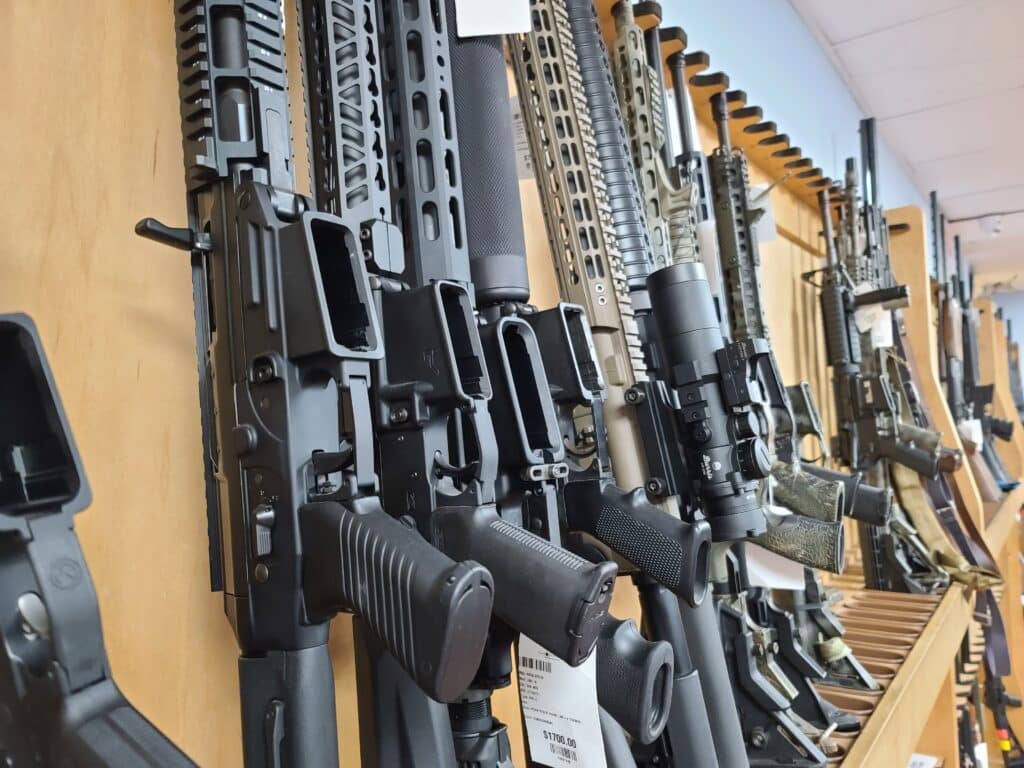
Analysis: A Trend That Should Worry Gun-Rights Advocates [Member Exclusive]
By Stephen Gutowski
71 percent of Americans want stricter gun laws.
That’s bad news if you’re a gun-rights proponent. But it’s not the worst news out of the latest Associated Press poll. What’s worse is the trend that brought about that all-time high.
Between December 2013 and August 2022, the number of Americans who say they want stricter gun laws has increased by 19 points. That’s a massive swing.
To some degree, this is what you’d expect to see after a shooting as horrific as the Uvalde shooting. Support for gun-control measures normally spikes in the immediate aftermath of mass shootings. Post-Uvalde polling from Gallup and Quinnipiac University showed the same jump in support for stricter gun laws.
Those polls identified the same kind of downturn once America is further out from a major attack. The AP poll shows jumps between 2015 and 2016 as well as 2019 and 2022. But it also shows drops between 2016 and 2017 as well as 2018 and 2019.
What’s clear, though, is the overall trend has moved upward. Where the poll used to fluctuate between the mid-50s and low-60s, it now fluctuates between the high-60s and low-70s. So long as that trend continues, the potential for new federal gun laws will increase alongside it.
With the defeat of an abortion-ban ballot initiative in Kansas and Republican Marc Molinaro in the swing district of New York 19, the potential for Republican disaster is increasing. Democrats have shown a willingness to pass new gun restrictions and even bans largely on the back of strong polling indicating Americans want stricter gun laws. If they retain control of Congress and pick up a seat or two in the Senate, that could lead to the end of the Senate filibuster and a new federal “assault weapons” ban along with it.
But that’s the nightmare scenario for gun-rights advocates. As bad as the trend is, there are a few reasons to think it may not continue, and we may not see strict new gun laws anytime soon.
For one, midterm elections tend to follow a certain hype schedule. Initially, the party out of power appears to have a chance at historic gains. Then, as the election draws closer, things tend to tighten up, and people begin to wonder if the party in power might be able to turn things around. Eventually, things tend to settle where the out-of-power party gains enough seats to retake at least one house of Congress, even if it’s not as many seats as seemed possible a few months earlier.
It certainly feels like we’re in the middle of that cycle right now. There are exceptions to the rules, but basic fundamentals still favor Republicans taking back at least the House of Representatives. They only need to flip five seats to do it, and President Joe Biden remains historically unpopular going into the midterm season.
Plus, the AP poll shows most Americans also want to protect gun rights and the ability of people to defend themselves with firearms. It shows they are more open to restricting access to guns for people who are shown to be a threat to themselves or others, such as the mentally ill or those convicted of domestic violence, than they are to categorical gun bans. While the poll found an increase in support for a ban on AR-15s, the first I’ve seen since the Uvalde massacre, that support is still 26 points lower than support for restricting those with mental illnesses.
The breakdown in how much stricter people want gun laws to be is further evidence of this. While support for more stringent gun laws is at an all-time high in the poll, support for “much stricter” gun laws is actually down five points from 2018. The number of people saying they want “somewhat stricter” laws is at an all-time high.
It’s precisely those people Republicans were hoping to appeal to when they supported the bi-partisan gun bill in June.
“We’ve lost ground in suburban areas. We pretty much own rural and small-town America. And I think this is a sensible solution to the problem before us, which is school safety and mental health,” McConnell told Politico of the decision in June. “I hope it will be viewed favorably by voters in the suburbs that we need to regain in order to hopefully be in the majority next year.”
The first new federal gun restrictions in a generation may bring down the level of support for further restrictions. The law does not include the kind of categorical bans on types of guns Americans can own but does extend domestic violence prohibitions to more people, among other reforms. It may satiate some of the demand for “somewhat stricter” gun laws.
Plus, the poll also shows growth in gun ownership. The number of people reporting a gun in the home climbed 7 points since 2019. A previous AP poll indicates those new gun owners may be even less receptive to stricter gun-control laws. So, as more people buy guns and change their attitude toward ownership, support for more gun restrictions could wane.
But that clearly hasn’t taken effect in polling yet. And gun-rights advocates should recognize they may not be able to rely on it as an inevitability. Instead, they will likely have to be more proactive to convince the public new gun restrictions are not the answer to mass shootings.
Speaking to The Liberal Gun Club
I spent Saturday speaking at a meeting of the Liberal Gun Club’s Virginia chapter. We talked a lot about the implications of the Bruen ruling, especially on Maryland and DC’s gun-carry laws, as well as how things are likely to shake out with the new laws in New York and California. We also talked about some of the racist roots of gun-control laws and the disparate impact of modern restrictions.
They had a lot of great questions and I think our discussion went great, as is usually the case whenever I speak to a Liberal Gun Club chapter. It’s always constructive to talk to other gun owners with a different perspective from your own. At the very least, it’s a good reminder that gun ownership is not the exclusive domain of any political ideology, party, race, religion, gender, age, or what have you.
Plus, we got to do some outdoor shooting at The Cove, which has to be the best outdoor range I’ve been to in Virginia. We did some handgun shooting and then some distance rifle shooting. It was a lot of fun.
I did manage to embarrass myself at the rifle range, though. While I was shooting one of the rifles an LGC (and Reload) member let me borrow, I got complacent. The gun was sitting in a bench rest that placed it a bit lower than what was comfortable for me. So, I leaned down and forward to try and position the stock a bit better in my shoulder.
But, as you may have guessed, that put my eye significantly closer to the scope of the gun than it should have been. After pulling the trigger, I got a rude reminder of why that’s a bad idea. The scope came back and kissed my forehead. It gave me a small, superficial cut. It honestly hurt my pride more than my head.
A bandaid fixed me up, but it didn’t make me feel like any less of a fool. Take this as your own reminder not to get complacent on the range. Mind that gap between your eye and the scope. Just because you haven’t made the mistake before doesn’t mean you can’t in the future!
On a more positive note, I recently sent my problem-child early-model Sig Sauer P-365 back to Sig a week or so ago. They sent it back with a new striker assembly and polished feed ramps. I was fairly skeptical that would fix my intermittent light-primer strike issue since I already tried replacing the striker assembly to no effect before. But it went through 150 rounds without any problem.
So, maybe it is fixed? I don’t know. I need to put more rounds through it before I decide, especially since this is the gun my gun-carry curious girlfriend is likely to end up with.
Still, it’s off to a good start. And it’s giving me a positive point to end on. So, that’s nice.
That’s it for now.
I’ll talk to you all again soon.
Thanks,
Stephen Gutowski
Founder
The Reload




